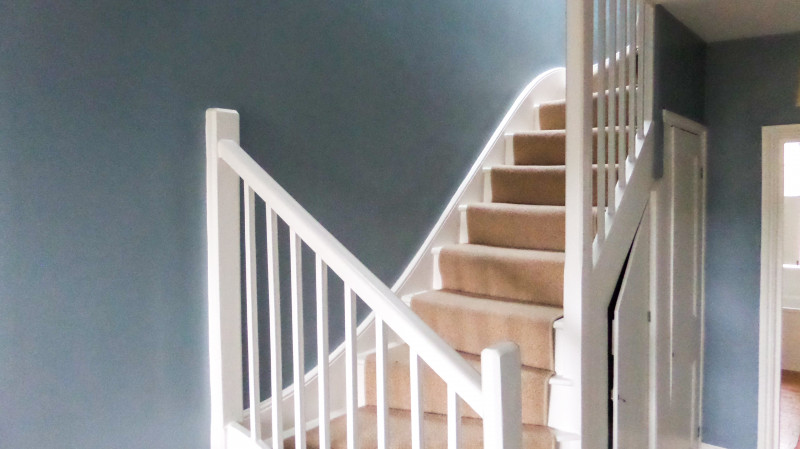You are here: Is now the time for first-time buyers to get on the property ladder?
Interest rates have fallen, banks are approving more loans and there are even deals when you don’t need a deposit.
Are you considering making that first step onto the property ladder? Now could be the perfect time, thanks to cheap borrowing and slow house price growth, say building societies. Lenders approved 7.8% more mortgages for first-time buyers in April compared with the same month last year, according to UK Finance, the industry trade body. Plus, first-time buyers in England and Northern Ireland are now exempt from paying stamp duty on properties worth up to £300,000 (£500,000 in London).

Deposit difficulties
Mortgage rates may have fallen but saving for a deposit can still be a struggle for first time buyers. The minimum deposit lenders will generally accept is 5% of the property value. But saving a bit more, so you can put down a 10% deposit is often the best way to secure a lower mortgage rate. The average purchase value for first-time buyers is £217,200 – making a 10% deposit worth £21,720. There are huge regional variations in house prices, however, which affects the size of deposit needed.
Robert Gardner, Nationwide’s chief economist, said: “Reflecting the trend in overall house prices, the deposit challenge is the most daunting in the South of England where it would take an average earner a decade or more to save a 20% deposit on the typical London property. In recent years, a growing proportion of first-time buyers have been drawing on help from family or friends or an inheritance to help raise a deposit.”
Zero-deposit
Building societies have become more innovative when it comes to schemes aimed at first-time buyers. Lloyds Lend a Hand Scheme mean you don’t need to save for deposit. A family member puts 10% of the purchase price into a Lloyds saving account which acts as security for your mortgage. At the end of three years, the relative will be able to take the money out, plus interest. Any missed mortgage payments will, however, be deducted. Barclays has a similar Family Springboard scheme, which is zero-deposit so long as a relative puts 10% of the value of the property into a savings account as security.
Rent-a-room
Bath Building Society has launched a ‘rent-a-room mortgage’ aimed at borrowers whose income isn’t quite enough to get the mortgage they need. If the property has a spare room, the mortgage lender will consider the rental income when working out just how much an applicant can borrow. Rental income from only one tenant will be considered and there must be a formal agreement.
Shared ownership
First time buyers can also get a foot on the property ladder with help from the Government’s shared ownership scheme. This involves co-owning with a housing association. You take out a mortgage for your share in the property (typically between 20 and 75%) and pay rent on the rest until you can afford a bigger share of the property. On the downside, the scheme is restricted to specific properties. Alternatively, there is private shared ownership with extended families or friends buying a property together.
Help to Buy
This scheme offers buyers who have a deposit of 5% an interest-free government loan of up to to 20% (40% in London). The scheme is, however, restricted to new-build homes. Critics say it pushes up house prices and subsidises housebuilders’ profits. But over 50,000 people have taken advantage of the scheme to date. Last year was a record for Help to Buy purchases with a 9% increase in the number of homes bought in England in the year to April compared with the previous year.
Other help available, includes Help to Buy Isa (individual savings account) which boosts first-time buyers’ savings. If you want a Help to Buy Isa you need to open it by November 30, 2019 when the scheme ends.
Lifetime Isa
This also pays first-time buyers a bonus on cash saved to buy your first home or for later life. You can put in up to £4,000 each year until you’re 50. The government will add a 25% bonus to your savings, up to a maximum of £1,000 per year. For more information see our article https://www.housemovepro.co.uk/financial-help-buyers-and-first-time-buyers
Starter Homes is a new government scheme that aims to provide 200,000 new build homes to first-time buyers in England with a 20% discount. The project hasn’t started yet, but planning is well underway. Would-be homeowners can register their interest on the Starter Homes website.
So, is now the perfect time for first-time buyers to get on the housing ladder? Henry Pryor, the BBC’s property expert, is sceptical due to current uncertainties over Brexit. He said: “This is a really uncertain time in the housing market. The people who are most vulnerable are first-time buyers who could easily buy something today that is cheaper tomorrow.” Bank of England chief Mark Carney, meanwhile, has warned a chaotic no-deal Brexit could see house prices plunge by as much as 35% over three years. This means first-time buyers could find themselves with negative equity - when the financial value of their home is less than the outstanding mortgage. Other analysts, however, argue first-time buyers could take advantage of the current uncertainty to bag themselves a bargain.
If you have are thinking of buying or selling your home, you may find some of these services useful:
Conveyancing
Get instant estimates from Conveyancers and Solicitors in your local area
Mortgage Brokers
I need help getting a mortgage
Estate Agent
Find a local Estate Agent
Valuation Surveys
If you need a Valuation Survey
Building Surveys
I want a local surveyor to do a Building Survey for me
Removals
I want to find a removal company
Energy Performance Certificate
Energy Performance Certificates